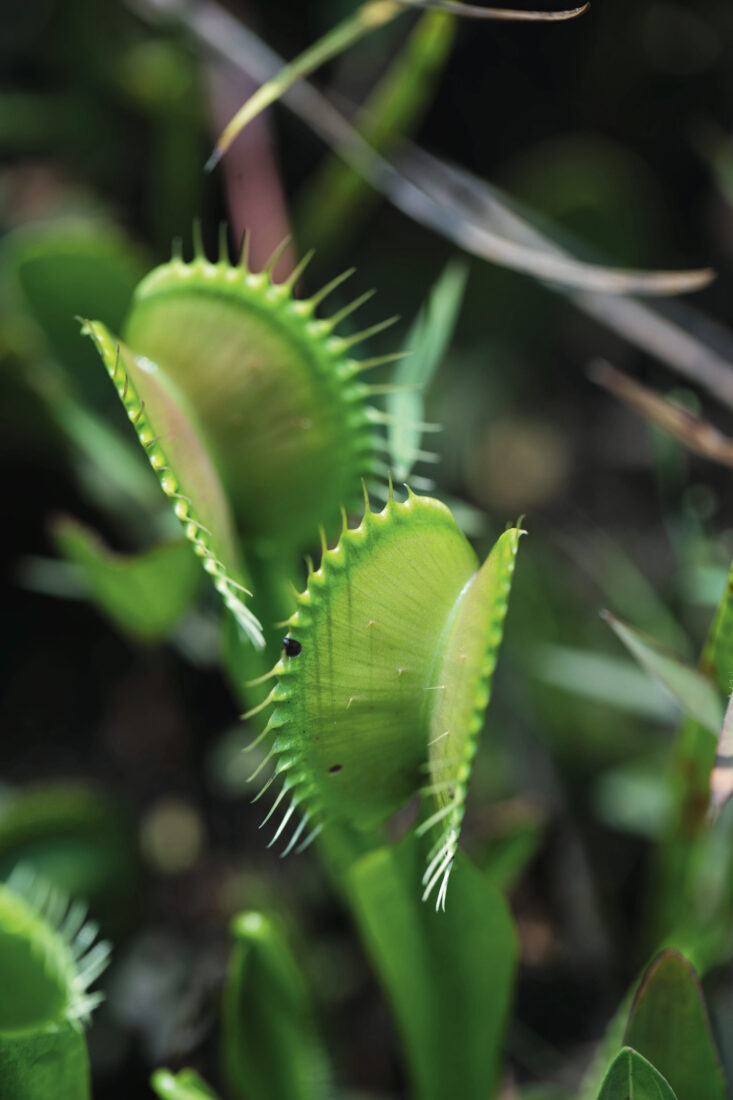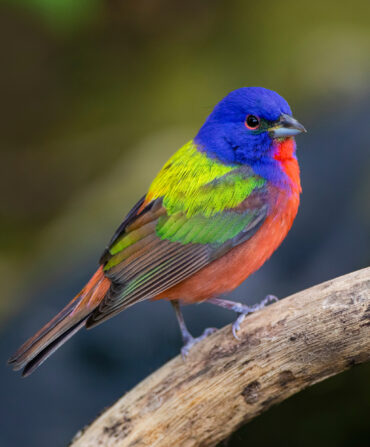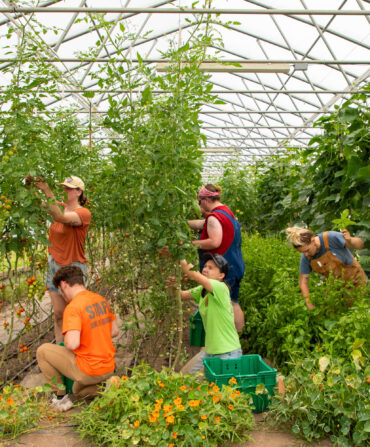Over her very long career, botanist Julie Moore served as (deep breath) an ecologist for the Natural Heritage Program, director of the land trust of Tall Timbers research station, and the coordinator of safe harbor and candidate conservation agreements for the U.S. Fish and Wildlife Service, to name a few roles. In 2019, she retired—that is, if you call working full-time to conserve her favorite plant “retirement.”
Moore beheld her first Venus flytrap at the North Carolina Botanical Garden when she was in graduate school and marveled at its exquisite detail. “I thought it was just about the most bizarre and wonderful thing I’d ever seen,” she remembers. The plants are native to only one place on the planet: an eighty-mile sliver of the Carolinas’ Coastal Plain, in the sandy, nutrient-poor soils of longleaf pine forests. The need for extra nutrition gave rise, over millions of years, to a hot spot of carnivorous, or insectivorous, plant diversity—North Carolina boasts thirty-six species, including specialized sundews and pitcher plants. Each has its own mechanism for catching a snack; in flytraps, delicate trigger hairs signal modified leaves to snap shut when they sense movement from an unlucky insect. But years of illegal poaching and habitat loss have taken their toll: Today, Venus flytraps are a candidate for listing as federally endangered.

In 2020, a U.S. Fish and Wildlife Service survey of the remaining flytraps revealed that only sixty-nine large populations remained, with some pockets on private land. Moore, the chair of the advisory board for the North Carolina Plant Conservation Program, sprang into action, identifying landowners who might be open to flytrap-friendly management practices, such as controlled burning to mimic fires that historically swept longleaf pine. “Flytraps are the bait to restore the whole longleaf pine system,” Moore explains. “It’s a pleasure to work with them because they’re such an easy sell.”
To recognize those she’s drafted, Moore started the Venus Flytraps Champions program three years ago. One honoree, Aaron Harward, serves as the public works superintendent of Boiling Spring Lakes, North Carolina, a town with such ideal conditions for flytraps they even grow in ditches there. Harward went so far as to take over roadside maintenance from the Department of Transportation to ensure that mowing only occurs when flytraps lie dormant. Next up: Moore plans to write a full conservation plan for the plant’s recovery, to coordinate efforts across its range.
* * *
Expertise: Botany
Location: Raleigh, North Carolina
Advocating since: 1972
Rev to recovery: Moore drives a sporty little red Mercedes-Benz Kompressor to recruit landowners with flytraps. “I’m used to knocking on doors and translating science to try to convince people that what is on their land is fascinating and contributes to the heritage of their area,” she says.








